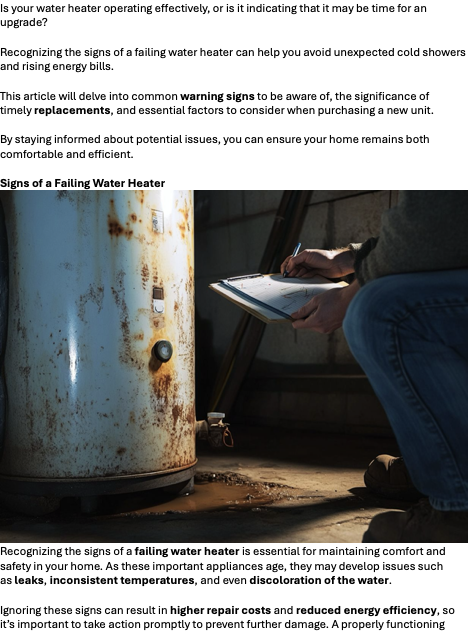Is your water heater operating effectively, or is it indicating that it may be time for an upgrade?
Recognizing the signs of a failing water heater can help you avoid unexpected cold showers and rising energy bills.
This article will delve into common warning signs to be aware of, the significance of timely replacements, and essential factors to consider when purchasing a new unit.
By staying informed about potential issues, you can ensure your home remains both comfortable and efficient.
Signs of a Failing Water Heater
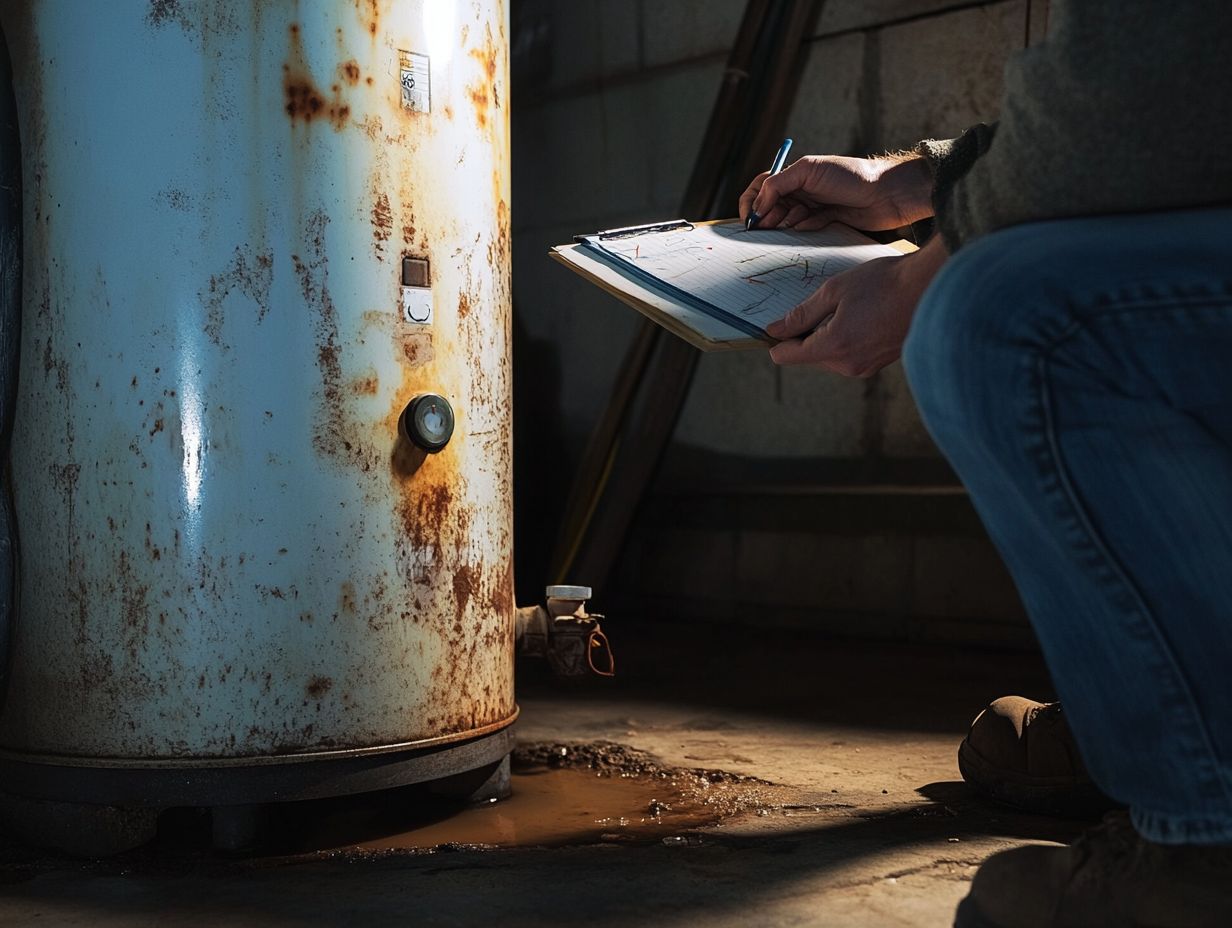
Recognizing the signs of a failing water heater is essential for maintaining comfort and safety in your home. As these important appliances age, they may develop issues such as leaks, inconsistent temperatures, and even discoloration of the water.
Ignoring these signs can result in higher repair costs and reduced energy efficiency, so it’s important to take action promptly to prevent further damage. A properly functioning water heater plays a significant role in home comfort, making it crucial to understand the indicators of potential failure.
Age and Lifespan of Water Heaters
The age and lifespan of a water heater are essential factors influencing its performance and reliability. Most traditional models typically last between 8 to 12 years. As a water heater ages, it may start to exhibit signs of wear, necessitating more frequent maintenance or even replacement. Understanding the expected lifespan of various water heater types can help homeowners prepare for eventual replacements and minimize disruptions in their hot water supply.
For example, tankless water heaters often have a longer lifespan, ranging from 15 to 20 years, significantly reducing the frequency with which homeowners need to consider replacements.
Regardless of the type, age can lead to sediment build-up and decreased efficiency, both crucial factors affecting performance. Regular inspections and maintenance can help extend the life of the unit and ensure it operates at optimal functionality.
By staying informed about these factors, homeowners can enhance their hot water experience and avoid unexpected costs associated with sudden plumbing issues.
Common Warning Signs of a Failing Water Heater
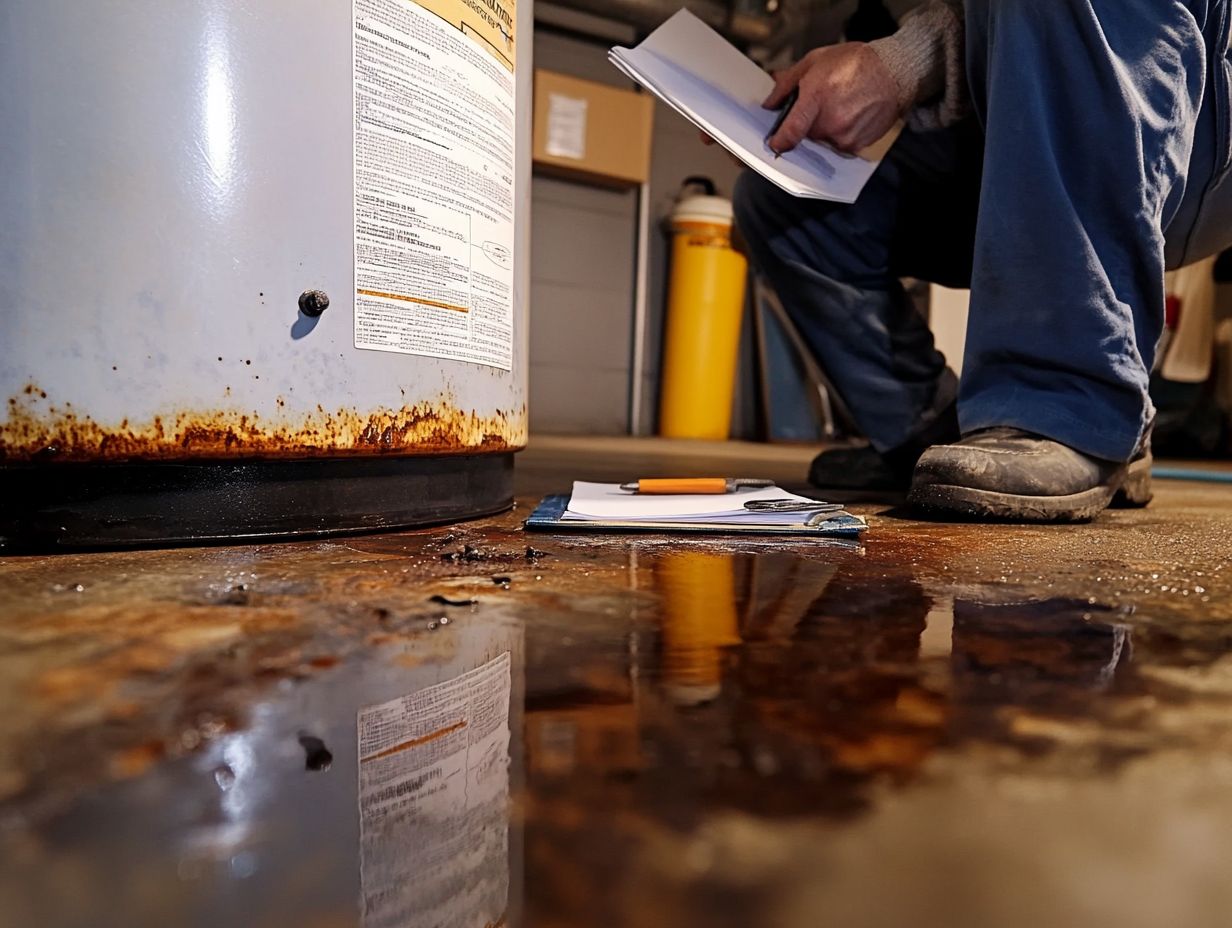
There are several common warning signs that may indicate your water heater is failing, and recognizing these signs early can help you avoid costly repairs. Indicators such as leaks, rust, and sediment buildup can significantly affect your hot water supply and the overall functionality of the unit. A water heater that displays signs of wear, along with fluctuating temperatures, should not be overlooked, as these issues can lead to more serious plumbing problems in the future.
Additionally, other concerning indicators include unusual noises, such as banging or popping sounds, which may suggest sediment accumulation that impacts efficiency. If you experience inconsistent hot water or notice discolored water, this may indicate that the tank is rusting from the inside, potentially leading to leaks and safety hazards.
Addressing these warning signs promptly is crucial for maintaining comfort in your home and avoiding emergency situations that could arise from a complete system failure.
Importance of Replacing a Water Heater
Replacing a faulty water heater is crucial for ensuring both energy efficiency and safety in your home. An old or malfunctioning water heater can result in excessively high energy bills and may present serious safety risks, including leaks or, in extreme cases, explosions.
By investing in a replacement, you not only improve your hot water supply but also reduce the potential repair costs associated with older models. Recognizing the consequences of not replacing your water heater can enable you to make informed decisions regarding home improvement and maintenance.
Effects of a Faulty Water Heater on Energy Bills
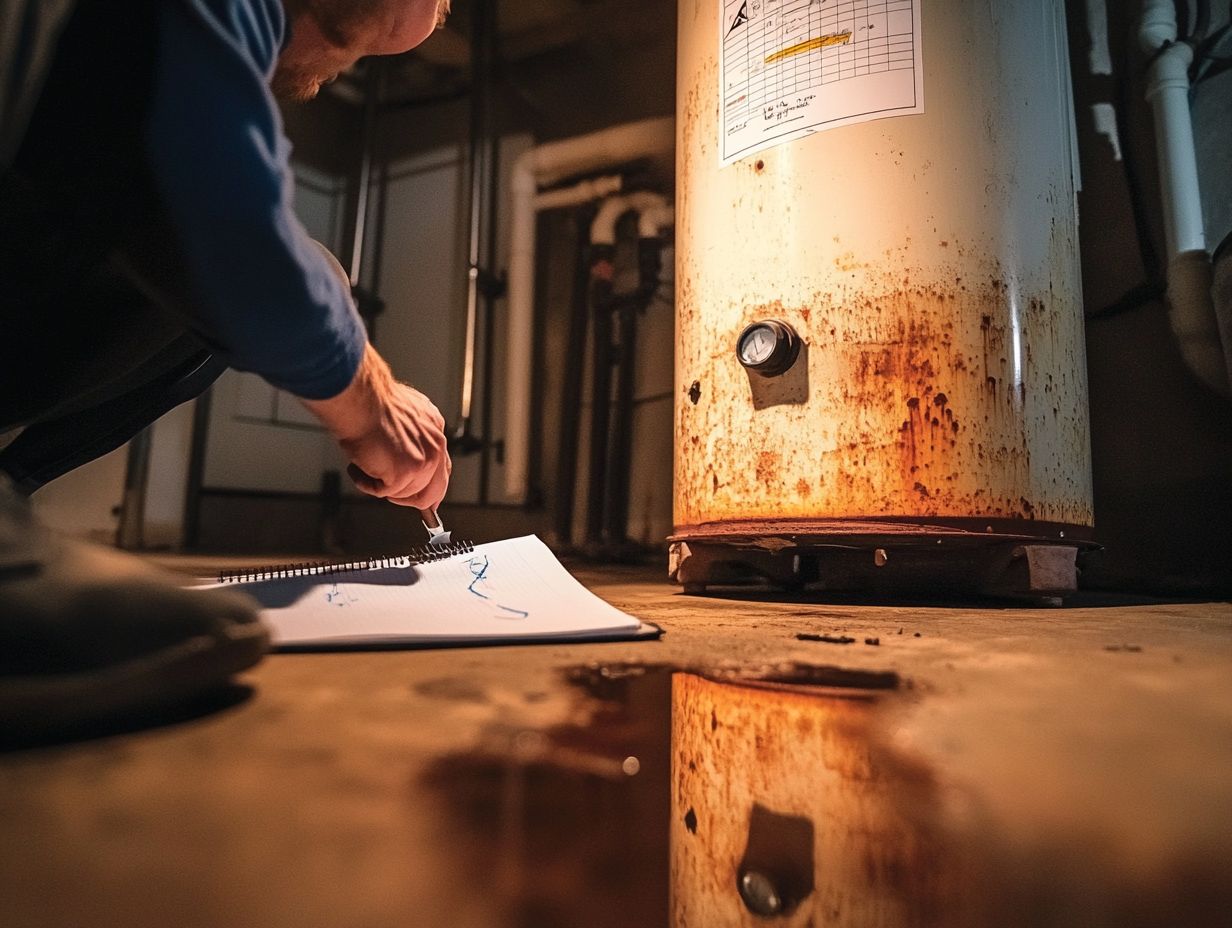
A malfunctioning water heater can significantly impact your energy bills, resulting in unexpected increases that may strain your household budget. When a water heater operates inefficiently, it requires more energy to heat water, leading to elevated utility bills.
By understanding the efficiency ratings of various water heater types, you can make informed decisions about maintaining or replacing your system to lower operational costs.
An inefficient system not only raises monthly expenses but may also indicate underlying issues that could lead to higher repair costs. Therefore, it is essential to regularly evaluate its performance.
High efficiency ratings signify that a unit can effectively heat water while using less energy, which ultimately contributes to savings on your bills. This knowledge is particularly important for homeowners who are considering whether to repair their existing heater or invest in a new installation for potential savings.
Although investing in a higher-rated water heater may involve upfront costs, the energy savings could very well offset that initial expense over time, making it a wise financial choice.
Safety Concerns and Potential Damage
Safety should always be a primary concern when it comes to your water heater. A malfunctioning unit can lead to serious issues such as leaks and corrosion.
These hazardous conditions can not only cause water damage to your home but also encourage mold growth, which poses health risks to those living there. If unnoticed, leaks can develop into floods, requiring immediate action to avert significant property damage. An aging unit showing signs of wear and tear definitely warrants a thorough inspection.
Therefore, it is essential to engage a qualified professional who can conduct a comprehensive assessment, identifying potential hazards before they evolve into costly emergencies. By being proactive with water heater maintenance, you can significantly improve safety and enjoy greater peace of mind.
Factors to Consider When Replacing a Water Heater
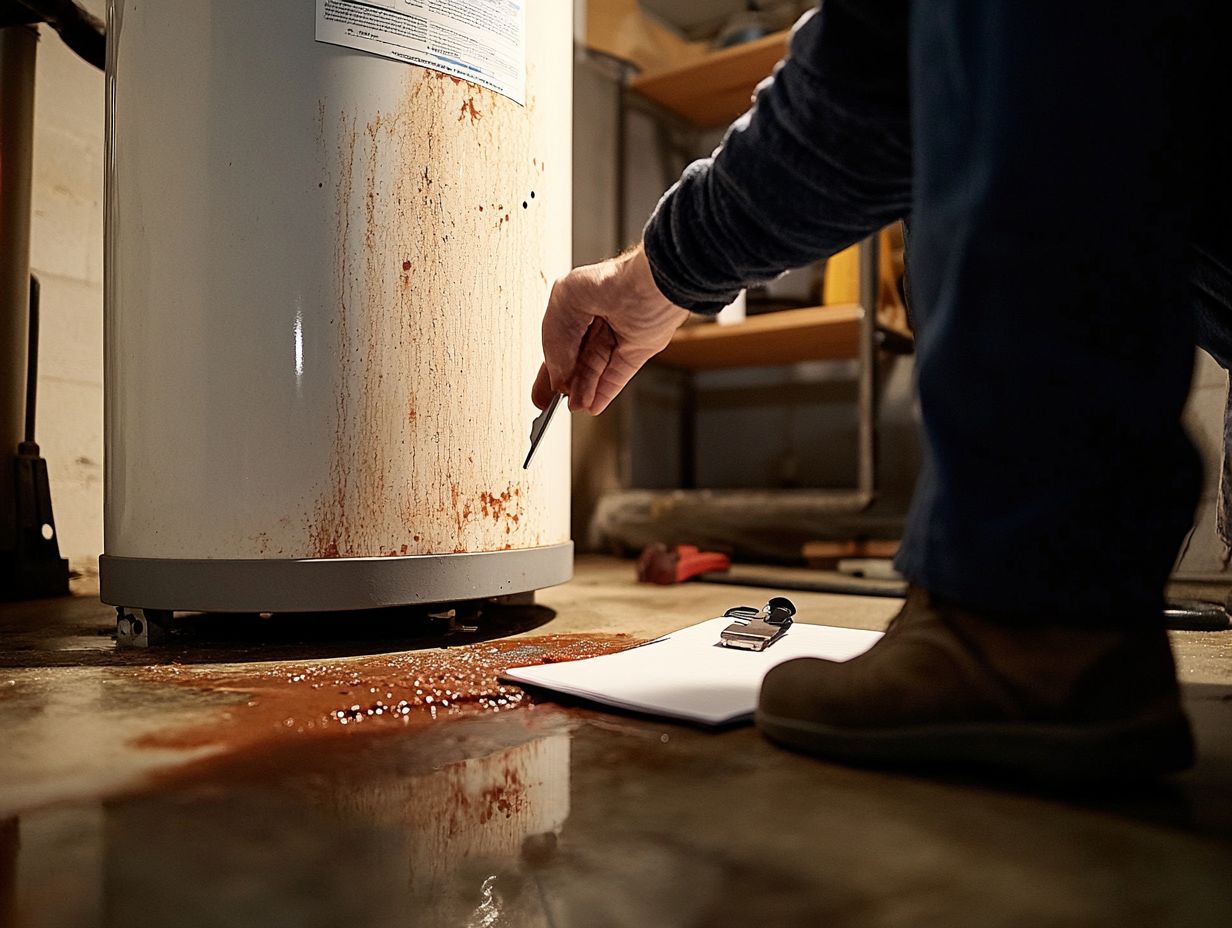
When contemplating the replacement of a water heater, there are several important factors to consider that can greatly influence your decision. From the various types of water heaters available to their energy efficiency ratings, gaining a clear understanding of these aspects can help you make a more informed choice.
Moreover, the installation process and how it aligns with your household needs are essential elements to take into account. This approach ensures that you arrive at a well-rounded decision that enhances the comfort of your home.
Type of Water Heater and Energy Efficiency
Choosing the appropriate type of water heater is essential for maximizing energy efficiency and fulfilling your hot water needs. Options like traditional tank heaters and modern tankless water heaters provide different levels of energy savings and operational costs.
Understanding these distinctions can enable homeowners to make informed decisions about technology upgrades that align with their specific household requirements and usage patterns.
Traditional tank models store a reservoir of hot water, which may result in higher energy bills due to heat loss, although they generally come with a lower upfront cost.
Conversely, tankless systems heat water on demand, eliminating standby energy waste and providing an endless supply of hot water. This makes them an excellent choice for larger families or households with significant hot water usage.
By carefully considering factors such as installation costs, energy consumption, and long-term savings, individuals can discover the optimal balance that suits their preferences while also minimizing their environmental impact.
Cost and Installation Process
Understanding the replacement cost and installation process of a new water heater is crucial for making a budget-conscious choice. The costs can vary significantly depending on the type of unit selected and the complexity of the installation, which may necessitate expert consultation and plumbing services. Being prepared for these expenses will facilitate a smooth transition to a new, more efficient water heater.
Several factors are essential in determining the total cost, including the water heater's fuel type—whether it is gas or electric—as well as its size and energy efficiency rating.
Additionally, it is vital to consider any necessary upgrades to existing plumbing or electrical systems, as these can further affect the overall expense. Collaborating with a qualified plumber or technician can help navigate these considerations while providing valuable insights into selecting the best unit for specific household needs.
During the installation process, one can expect a series of procedures, including disconnecting the old unit and ensuring proper venting for safety, all executed under the guidance of an experienced professional.